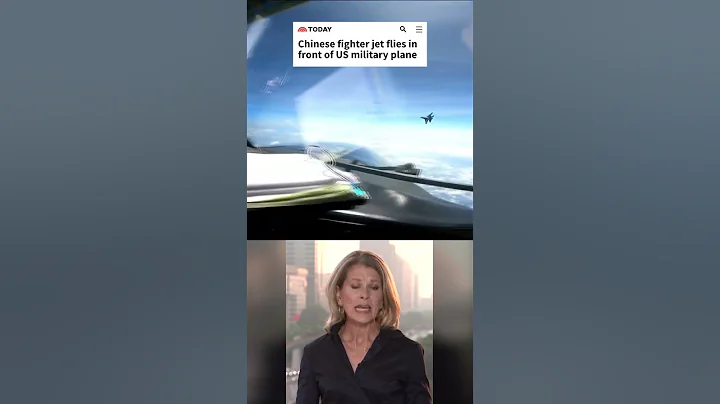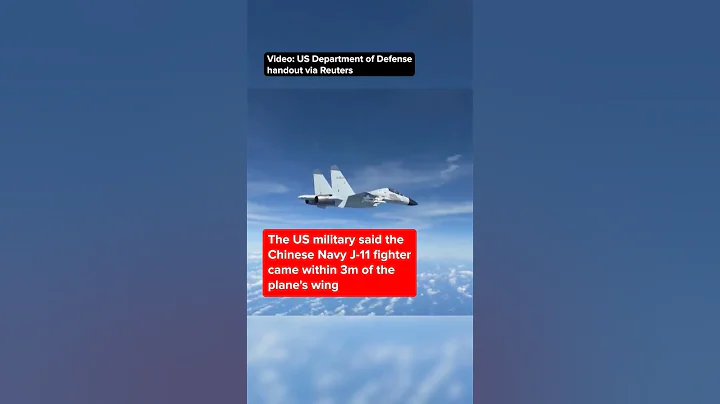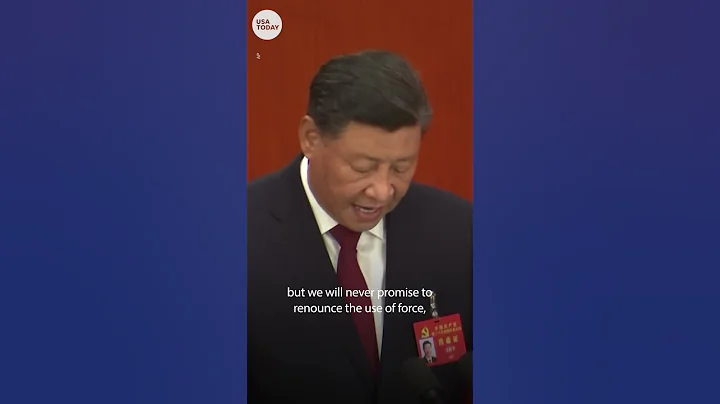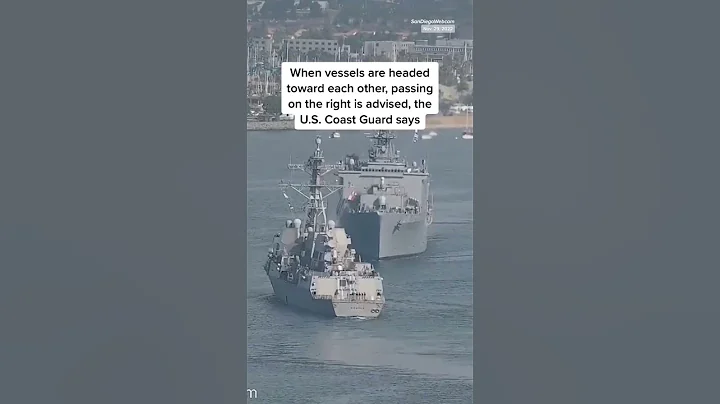Source: Privy Council No. 10
The New York Times of the United States recently stated that according to a document that is apparently still classified, in 1958, when the "Communist Chinese" army began shelling several islands controlled by Taiwan, the United States rushed to use military force The U.S. military backed its allies -- including developing plans for a nuclear strike on China -- that cast a new light on the dangers of that crisis. The report also stated that two days after the People's Liberation Army bombarded Kinmen in 1958, Lawrence Coote, then commander of the U.S. Air Force Pacific Command, requested nuclear weapons authorization from the U.S. government. At that time, he expressed concern about a plan to use nuclear weapons to preemptively attack air force bases in mainland China. support. The plan was eventually supported by Nathan Twining, then chairman of the US Army's Joint Chiefs of Staff. Twining even proposed a crazy plan to carry out a wider nuclear strike on mainland China, including "a deeper nuclear strike on mainland China, as far north as Shanghai."

Lawrence Coote, then commander of the U.S. Air Force Pacific Command

Nathan Twining, then chairman of the U.S. Joint Chiefs of Staff
Indeed, the content disclosed in the report was hot enough. Some documents had been disclosed before, The United States was against China at that time Cities carrying out nuclear blackmail and threatening nuclear attacks include Xiamen and other places, and new details show that the United States is even crazier than people imagined.
However, these things happened 63 years ago, why are they being exposed now? Just consider two aspects of the background, and the answer is readily apparent.
1. The tense situation in the Taiwan Strait. As American scholars say, the Biden administration's withdrawal of troops from Afghanistan , its tough stance on Russia, and its negotiations with Iran are not as important as Biden's quietly and step-by-step actions to establish relations with Taiwan. closer ties and move away from its “one China” policy. The U.S. government's recent series of policies toward Taiwan have increased tensions across the Taiwan Strait, and many analysts are discussing the possibility of a "catastrophic war." NATO Former top military chief Stavridis said not long ago that among the four potential maritime flashpoints in East Asia, Taiwan is the most dangerous and most likely to explode.
2. The status of the New York Times. In the current all-round strategic competition between the United States and China, public opinion is becoming a key area and an important part of the American political elite's social mobilization. The New York Times, as a heavyweight liberal media, has been almost the same as the conservative Trump for 4 years. Now that the Biden administration, which is also a liberal, has come to power, it will naturally participate in the social consensus-building efforts of the Democratic Party elites. Among them, in order to gain more social recognition for the all-round competition strategy against China. The New York Times has undertaken this task more than once: In 1958, when the New York Times reported on the U.S.’s nuclear deterrence against China, the headline was very direct—“If the Reds invade Kinmen, the U.S. decides to use force.”
To put it bluntly, this trick of the United States is not new. The Taiwan military has often used it recently and called this approach "cognitive warfare." Not long ago, some Taiwanese soldiers complained online that US soldiers can drink bottled milk, but they can only drink milk powder, taking the opportunity to expose the secret that "there are indeed US soldiers operating in Taiwan." Some time ago, grassroots officers and soldiers of the Taiwan military "accidentally leaked" an article about an advanced anti-stealth fighter radar deployed in Penghu, which was said to be able to shoot down the People's Liberation Army's J-20 fighter jets. In fact, there are so many accidental leaks. They are clearly intended to show that Taiwan's security is protected by the United States (or advanced weapons) and embolden "Taiwan independence".
The New York Times is not WikiLeaks, and Daniel Ellsberg, who revealed the latest details of the nuclear attack on China, is not Snowden. Its intention to exaggerate that "the United States is willing to use nuclear weapons to confront mainland China" has been revealed from time to time in reports.
For example, this paragraph: "More than 60 years later, Taiwan's status—and the United States' willingness to use nuclear weapons to defend Taiwan—remain strategically ambiguous."
Another example:
The document shows that even in 1958, Officials also doubt that the United States can successfully defend Taiwan with conventional weapons alone. Yale University Westad, a historian who studies the Cold War and China, said that if China invaded Taiwan now, "it would put tremendous pressure on U.S. policymakers to consider how to deploy nuclear weapons."
"Change Nuclear Weapons" Intimidated?" one netizen commented in response to the New York Times report. Nuclear intimidation has a more notorious name in mainland China called nuclear blackmail. The People's Republic of China has faced this problem since its founding. During the War to Resist U.S. Aggression and Aid Korea, MacArthur repeatedly clamored for the use of nuclear bombs. The first Taiwan Strait crisis broke out in 1954. In 1955, the U.S. Congress voted on a Taiwan-related resolution, and it was finally passed by an overwhelming majority. In the Senate it was 83 to 3, and in the House of Representatives it was 410 to 3 (is it the same as the current United States Congress?) Comments from scholars at the time said that this move was a blank check for President Eisenhower to fill in as he wished in dealing with the Taiwan issue. The U.S. military also quickly filled in this check with nuclear weapons. In 1957, the United States deployed "Matador" missiles capable of carrying nuclear warheads in Taiwan.

On May 12, 1957, "Wen Wei Po" published my statement strongly protesting against the stationing of US missile troops in Taiwan.

In 1957, the United States deployed "Matador" missiles capable of carrying nuclear warheads in Taiwan.
An article published by the Federation of American Scientists a few years ago stated that shortly after the People's Liberation Army shelled Kinmen Island in 1958, Chairman of the Joint Chiefs of Staff Nathan Twining held a meeting with Eisenhower's cabinet. It began with a map showing U.S. planes set to drop nuclear bombs on selected areas near Xiamen to defeat the attacking People's Liberation Army. At that time, the "Matador" nuclear cruise missile had been deployed in Taiwan. The missile can launch a W5 nuclear warhead with a yield of 20,000 tons to a distance of approximately 965 kilometers.
The current revelations in the "New York Times" are just adding some details to the nuclear blackmail of that year. It can also be regarded as a "waste recycling" by the Americans, using the danger of "nuclear war" back then to imply something, such as the importance the United States attaches to Taiwan. Ah, we must do everything we can to thwart the intention of cross-strait reunification.
Of course, many forces in the United States have recently shown their determination to "protect Taiwan," but is this determination really that reliable? The article by Bennet, a professor at the City University of New York in the United States, believes that the United States' reliance on deterrence against China alone will not work. The United States has shortcomings in both strength and willpower. For example, in terms of willpower, mainland China cares more about Taiwan: in 2017, Taiwan ranked first among mainland Chinese people's concerns about US-China relations. In contrast, for Americans, Taiwan does not even rank in the top seven.
U.S. polls also show that although Washington’s foreign policy elites overwhelmingly support war for Taiwan, ordinary Americans are deeply skeptical. A report from the Chicago Institute of Global Affairs found that although 85% of Republican leaders and 63% of Democratic leaders support calling in U.S. troops to help defend Taiwan, only 41% of the public supports this view. Beinart said the number would be even lower if the people surveyed knew that such a conflict could lead to a nuclear war.
As a 1964 editorial in the People's Daily said: "The United States' nuclear blackmail policy is based on its nuclear monopoly. After the United States' nuclear monopoly is further broken, the United States' nuclear blackmail policy will no longer be able to tolerate it."
The looming deterrent coming from the United States now reminds us to relive the "People's Daily" extrapolation when China's atomic bomb exploded...






















